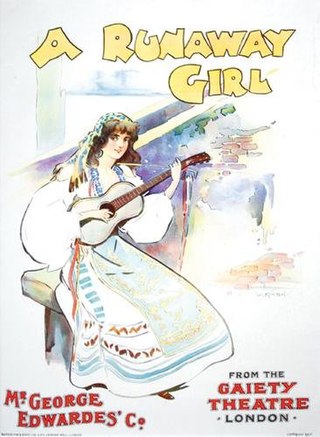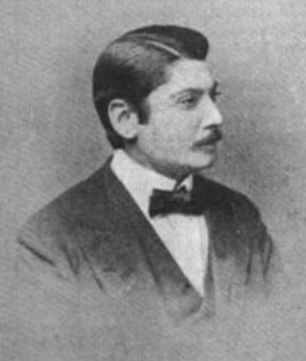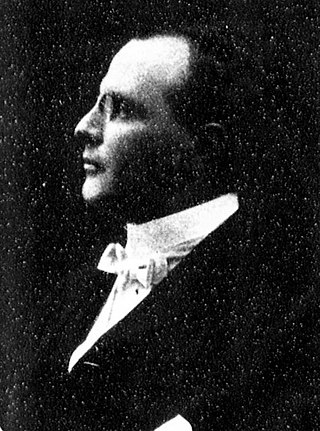This is a selected list of the longest-running musical theatre productions in history divided into two sections. The first section lists all Broadway and West End productions of musicals that have exceeded 2,500 performances, in order of greatest number of performances in either market. The second section lists, in alphabetical order, musicals that have broken historical long run records for musical theatre on Broadway, in the West End or Off-Broadway, since 1866, in alphabetical order.

Lionel John Alexander Monckton was an English composer of musical theatre. He became Britain's most popular composer of Edwardian musical comedy in the early years of the 20th century.

James Sidney Jones, usually credited as Sidney Jones, was an English conductor and composer, who was most famous for composing the musical scores for a series of musical comedy hits in the late Victorian and Edwardian periods. Jones's most famous musical was The Geisha, but several of his pieces were among the most popular shows of the era, enjoying long runs, international tours and revivals.

The Geisha, a story of a tea house is an Edwardian musical comedy in two acts. The score was composed by Sidney Jones to a libretto by Owen Hall, with lyrics by Harry Greenbank. Additional songs were written by Lionel Monckton and James Philp.
Harry Greenbank was an English writer and dramatist best known for contributing lyrics to the successful series of musicals produced at Daly's Theatre by George Edwardes in the 1890s.

Arthur Reed Ropes, better known under the pseudonym Adrian Ross, was a prolific writer of lyrics, contributing songs to more than sixty British musical comedies in the late 19th and early 20th centuries. He was the most important lyricist of the British stage during a career that spanned five decades. At a time when few shows had long runs, nineteen of his West End shows ran for over 400 performances.

Félix Marie Henri Tilkin, better known by his pen name Ivan Caryll, was a Belgian-born composer of operettas and Edwardian musical comedies in the English language, who made his career in London and later New York. He composed some forty musical comedies and operettas.

A Runaway Girl is an Edwardian musical comedy in two acts written in 1898 by Seymour Hicks and Harry Nicholls. The composer was Ivan Caryll, with additional music by Lionel Monckton and lyrics by Aubrey Hopwood and Harry Greenbank. It was produced by George Edwardes at the Gaiety Theatre, London, opening on 21 May 1898 and ran for a very successful 593 performances. It starred Hicks's wife, Ellaline Terriss and the comic actor Edmund Payne.

George Joseph Edwardes was an English theatre manager and producer of Irish ancestry who brought a new era in musical theatre to the British stage and beyond.

The Gaiety Theatre was a West End theatre in London, located on Aldwych at the eastern end of the Strand. The theatre was first established as the Strand Musick Hall in 1864 on the former site of the Lyceum Theatre. In 1868, it became known as the Gaiety Theatre and was, at first, known for music hall and then for musical burlesque, pantomime and operetta performances. From 1868 to the 1890s, it had a major influence on the development of modern musical comedy.

Percy Greenbank was an English lyricist and librettist, best known for his contribution of lyrics to a number of successful Edwardian musical comedies in the early years of the 20th century. His older brother, the dramatist Harry Greenbank, had a brilliant career in the 1890s that was cut short by his death at the age of 33. Percy picked up where his brother had left off, writing lyrics for some of the most popular musicals from 1900 through World War I and even afterwards.

James Tolman Tanner was an English stage director and dramatist who wrote many of the successful musicals produced by George Edwardes.

Howard Munkittrick, better known as Howard Talbot, was an American-born, English-raised conductor and composer of Irish descent. He was best known for writing the music to several hit Edwardian musical comedies, including A Chinese Honeymoon, The Arcadians and The Boy, as well as a number of other successful British musicals during the first two decades of the 20th century.

The New Aladdin is an Edwardian musical comedy in two acts by James T. Tanner and W. H. Risque, with music by Ivan Caryll, Lionel Monckton, and additional numbers by Frank E. Tours, and lyrics by Adrian Ross, Percy Greenbank, W. H. Risque, and George Grossmith, Jr. It was produced by George Edwardes at the Gaiety Theatre, opening on 29 September 1906 and running for 203 performances.

Edwardian musical comedy was a form of British musical theatre that extended beyond the reign of King Edward VII in both directions, beginning in the early 1890s, when the Gilbert and Sullivan operas' dominance had ended, until the rise of the American musicals by Jerome Kern, Rodgers and Hart, George Gershwin and Cole Porter following the First World War.

The Fifth Avenue Theatre was a Broadway theatre in Manhattan, New York City, United States, at 31 West 28th Street and Broadway. It was demolished in 1939.

Katie Seymour was a British Victorian burlesque and Edwardian musical comedy entertainer who was remembered primarily for her dancing. She was considered, if not the first, one of the first to perform a style of dance called the skirt dance. Seymour began in song and dance routines at a very young age and would go on to appear in a string of highly successful long-running musicals staged at London's Gaiety Theatre during the 1890s. She fell ill in 1903 while on a theatrical tour of British South Africa and died not long after her return voyage home.

Development of musical theatre refers to the historical development of theatrical performance combined with music that culminated in the integrated form of modern musical theatre that combines songs, spoken dialogue, acting and dance. Although music has been a part of dramatic presentations since ancient times, modern Western musical theatre developed from several lines of antecedents that evolved over several centuries through the 18th century when the Ballad Opera and pantomime emerged in England and its colonies as the most popular forms of musical entertainment.
This is a summary of 1902 in music in the United Kingdom.

Aubrey Hopwood was a British lyricist of Edwardian musical comedy and a novelist and author of nonsense books for children. He co-wrote the lyrics for the musicals Alice in Wonderland (1886), A Runaway Girl (1898) and The Lucky Star (1899), among others.
















